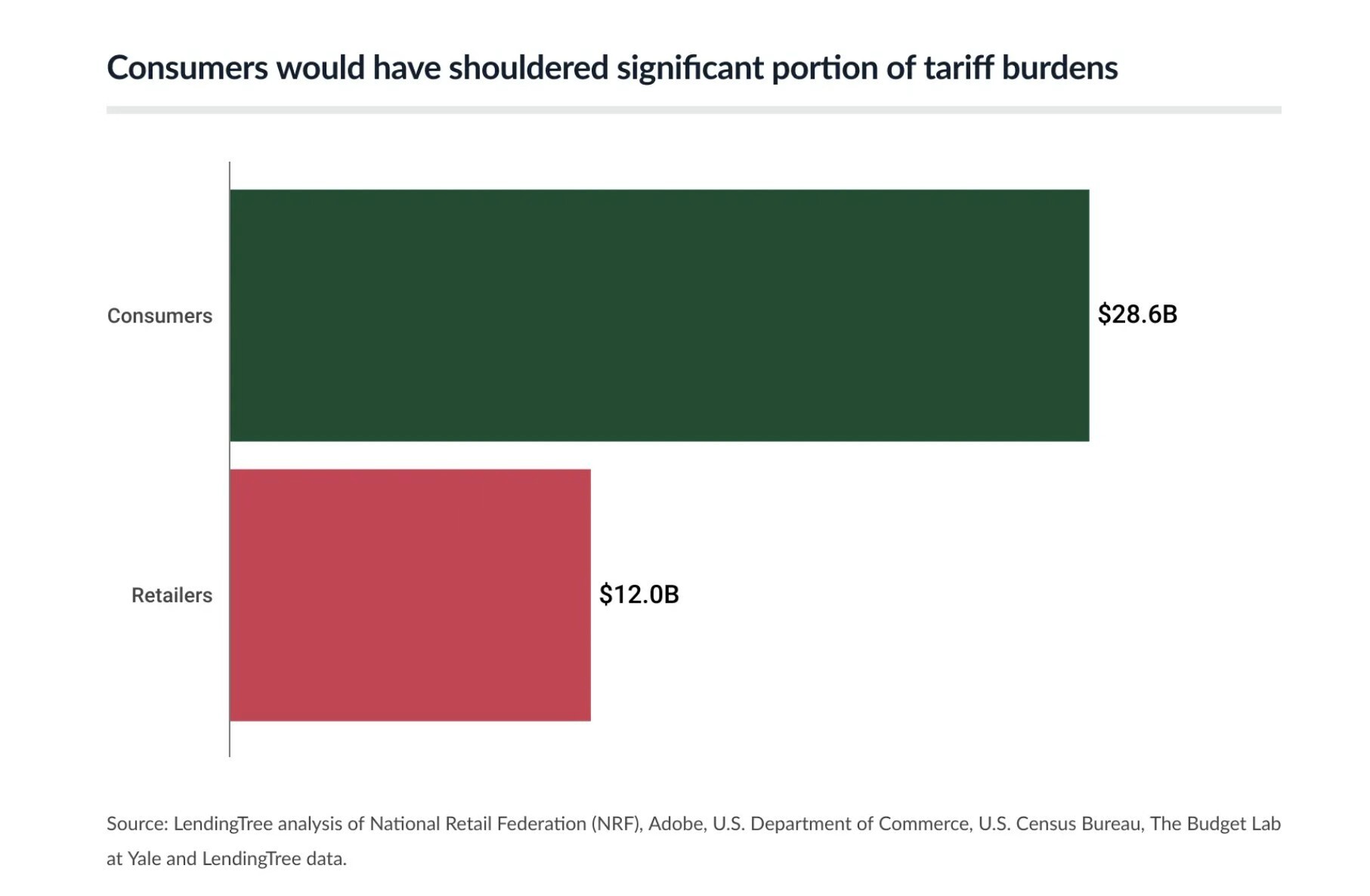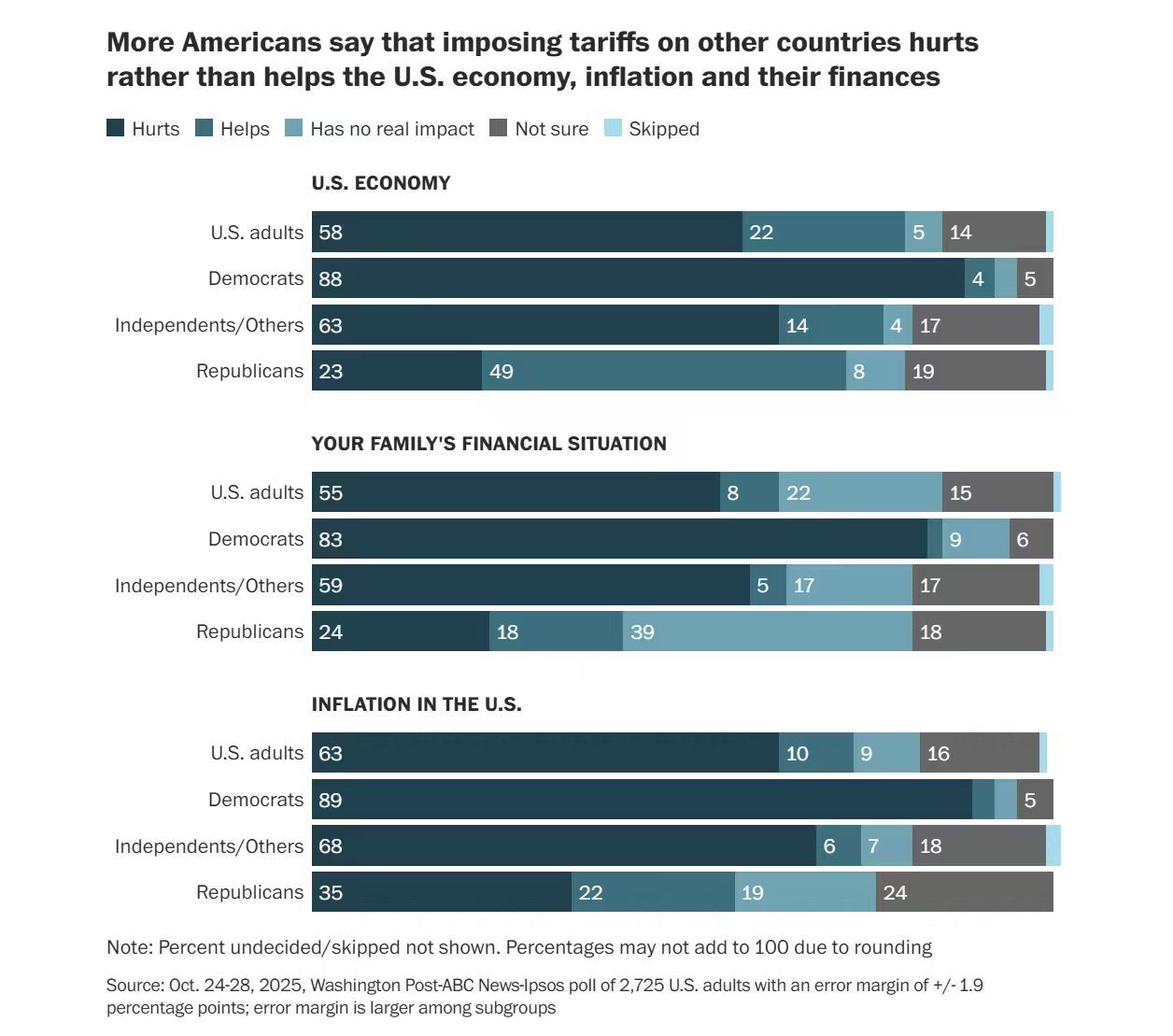By Wu Siya
BEIJING, Nov. 6 (China Economic Net)- On November 5, US Supreme Court justices expressed skepticism about the legality of aggressive tariffs imposed by President Donald Trump against most of the world's nations.
A majority of justices, including several conservatives, expressed doubts about the White House's justification of the import tariff, which has condemned by the U.S. Chamber of Commerce as “causing irreparable damage to businesses large and small across the United States, highlighting the enormous economic consequences of the president's tariff policies.”
The tense standoff over a “devastating crisis”
The case centers around a 1977 law, the International Emergency Economic Powers Act (IEEPA), that gives the president the power to "regulate" trade in response to an emergency. Trump first invoked IEEPA in February to tax goods from China, Mexico and Canada. Then he deployed it again in April, ordering levies from 10% to 50% on goods from almost every country in the world.
This case is the most significant controversy concerning presidential policy ever brought to the Supreme Court, as well as the first case in which justices may be required to make a final ruling, clearly involving a crucial stake.
Arguing for the administration, Solicitor General John Sauer solemnly warned that if Trump's tariff powers were ruled illegal, it would expose the US to “ruthless trade retaliation” and lead to “ruinous economic and national security consequences”.
But under the Constitution, America’s founding legal document, Congress, not the president, holds the power to tax and the court has traditionally set limits in how much of that authority it can hand over. If the court rules in favor of Trump in this case, another conservative judge, Neil Gorsuch, couldn't help but ask: “What can stop Congress from relinquishing all responsibility for regulating foreign trade?”
According to Wells Fargo analysts, the case involves approximately $90 billion in import tariffs already paid-about half of the U.S. tariff revenue through September this year. Trump administration officials have warned that this amount could soar to $1 trillion if the Supreme Court delays its ruling until June.
Tariffs as a double-edged sword that hurts both sides
In fact, the Supreme Court is not being asked to pass judgment on the wisdom of President Donald Trump’s tariffs. The market is responsible for rendering that verdict. So far, it’s a negative one.
“The US will soon see its major Black Friday shopping season at the end of this month. However, due to the tariff policies, the cost of shopping for American consumers this year may rise significantly,” Ma Wei, assistant researcher at the Institute of American Studies of the Chinese Academy of Social Sciences, told China Economic Net.

70.5% of new tariffs were passed onto consumers in June 2025-with retailers paying the other 29.5% [Photo/LendingTree]
Online lending platform LendingTree predicts that the administration’s tariff policies are expected to increase total costs for consumers and retailers by $40.6 billion. Of this, US consumers are projected to bear $28.6 billion in additional tariff costs, while US retailers are expected to shoulder the remaining $12 billion, which also means that every American shopper will have to spend an extra $132. And according to LendingTree’s estimates, consumers of electronic products will be most affected by tariffs, with an average additional expenditure of $186 per person; clothing and accessories will follow closely behind, with an average increase of $82 per person.
And a majority of Americans say they are spending more on groceries and utilities than they were a year ago, a Washington Post-ABC News-Ipsos poll finds.

The Washington Post-ABC News-Ipsos poll [Photo/The Washington Post]
Economists warn that the full impact of tariff policies could take months to materialize, causing unease among many business owners and households. Polls show that over 60% of Americans believe tariffs will exacerbate inflation. Nearly 60% of Americans believe tariffs have harmed the U.S. economy.
Furthermore, uncertainty surrounding U.S. government trade policy has become a major factor dampening business confidence. Business confidence among consumer goods manufacturers has fallen to its lowest point in two years, as companies become increasingly concerned about declining domestic household spending and sales to consumers in export markets.
The nation’s manufacturing sector, which Trump’s tariffs are intended to promote, contracted in October for the eighth-consecutive month, the Institute for Supply Management said this week. The group’s closely watched Purchasing Managers’ Index registered at 48.7 percent; readings below 50 percent signal economic retreat.
The ongoing manufacturing shrinkage accelerated in October, reflecting “continued economic uncertainty,” said Susan Spence of the ISM’s manufacturing business survey committee.
Alexander Lacik, CEO of Danish jewelry company Pandora, said he was closely following the hearing because tariffs are a “nuisance” issue for his business. Pandora's jewelry is made in Thailand, where goods are subject to a 19% tariff.
“There are still many uncertainties surrounding US tariff policy. First, the legality of present tariff policies awaits a final ruling from the Supreme Court. Next, most trade agreements reached between the US and its major trading partners have not been published in the form of executive orders, with the details of the terms remain controversial. If the fentanyl tariff and the retaliatory tariffs are ruled illegal and revoked, the significant reduction in US tariffs will be beneficial to global trade activities. However, considering the significant short-term fiscal effects of tariff policies, if they are subsequently ruled illegal, the US may continue to use other tools to introduce new tariff policies, which would weaken the global trade situation,” Ma told.
It is estimated that the Supreme Court will need at least several weeks, or even months, to reach a final ruling. Analysts point out that even if the Trump administration loses this case, it will still invoke other laws to implement tariff policies, although the speed and extent of these implementations will be limited.
(Editor: wangsu )


